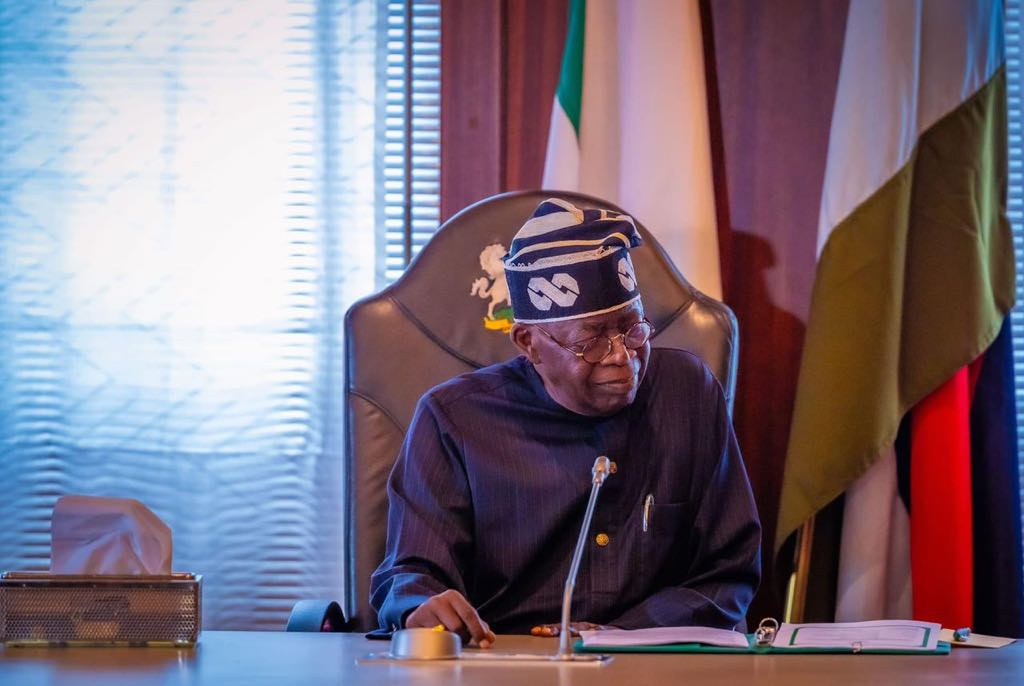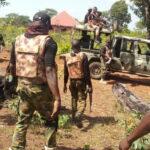Amid the complexities of global conflicts, the path to peace often winds through treacherous territories where dialogue with non-state armed groups becomes an inevitable, albeit contentious, option. Our country, Nigeria is grappling with the insidious challenge posed by Boko Haram (and its splinter groups) in the northeastern region, and other armed kidnappers, bandits and insurgent groups.
As a conflict researcher, I wish to draw the attention of the Federal Government of Nigeria to the necessity of earnestly considering the opening of channels for negotiation and dialogue with these non-state armed groups. This approach draws on historical precedents and recognises the undeniable power of communication in resolving conflicts.
The insurgency in Nigeria, spearheaded by Boko Haram since 2009, has resulted in tens of thousands of deaths and displaced millions, destabilising the northeastern region of the country with significant economic consequences for Nigeria and the sub-region as a whole. Despite extensive military campaigns and international support, the conflict has persisted, morphing into a complex hydra with factions and splinter groups further complicating the security landscape.
The situation calls for new strategic thinking through communication, dialogue, and negotiation, with dialogue emerging as a pivotal tool that could pave the way for lasting peace in Nigeria and beyond. There was never a time when peace was achieved solely through military means; peace can only prevail through understanding and justice.
- Farmer: I earn N7m annually from growing tomato, pepper
- Slain officers: ‘You’ve murdered peace’, IGP orders IMN sponsors’ manhunt
The proposition of negotiating with groups labelled as terrorists is fraught with moral and ethical dilemmas. Some critics argue that it legitimises the perpetrators of violence, undermines state sovereignty, and could potentially embolden other groups to take up arms.
During my doctoral field research in the Niger Delta, the results revealed that prioritising armed groups over the peace-loving population further creates avenues for frustrated groups to embrace arms against the state. However, the crux of this argument is not to rule out dialogue or replace military action but to complement it, recognising that the root causes of insurgencies often lie in political, economic, and social grievances that cannot be addressed solely through force. The positive development is the recent Supreme Court judgement granting local government autonomy may provide an avenue for engaging armed groups in dialogue, led by council chairmen and traditional rulers.
Furthermore, dialogue is not always the solution. For example, the Liberation Tigers of Tamil Eelam (LTTE) in Sri Lanka serve as a poignant example. The Sri Lankan government’s initial attempts to negotiate with the LTTE, despite several failed ceasefires, underscore the potential and pitfalls of dialogue with armed groups. While the conflict ultimately ended through military means, the protracted negotiations highlighted the complexities of addressing the legitimate grievances of minority communities and the importance of inclusivity in peace processes.
Similarly, the Good Friday Agreement of 1998 in Northern Ireland showcases the success of dialogue. After decades of conflict, known as “The Troubles,” involving the Irish Republican Army (IRA) and other paramilitary groups, a combination of political will, international mediation, and a readiness to address underlying issues led to a peace agreement that has largely endured. The key lesson from Northern Ireland is the value of engaging in dialogue, even with those considered implacable foes, to achieve sustainable peace.
In the case of Nigeria, and drawing from these examples, the country could explore a multifaceted ‘multi-track’ approach to its insurgency problem. First, establishing communication channels with insurgent groups could provide insights into their motivations and demands, many of which may stem from feelings of economic marginalisation and injustice. By addressing these root causes, the government can work towards undermining the ideological and recruitment base of these groups.
Second, initiating a peace process with non-state armed groups requires a careful balancing act, ensuring that the pursuit of peace does not inadvertently reward violence, as was done in the Niger Delta’s amnesty programme. This could involve setting clear preconditions for dialogue, such as the cessation of hostilities and a commitment to disarmament, monitored by international bodies to lend credibility and neutrality to the process.
Third, the Nigerian government must bolster its efforts to rebuild trust with affected communities, enhancing its legitimacy and undercutting the insurgents’ narrative. Nigeria must collaborate with the countries within the Lake Chad Basin, particularly Niger, Chad, and Cameroon. This includes not only military protection but also significant investment in development, education, and reconciliation programmes to heal the deep-seated wounds inflicted by years of conflict. Nigeria may study and adopt a home-grown healing and justice system similar to Rwanda’s post-genocide Gacaca transitional justice system.
International experience underscores the importance of inclusive dialogue that incorporates a wide range of stakeholders, including civil society, religious leaders, and affected communities, in the peace process. Such inclusivity ensures that the peace built is durable and reflective of the diverse interests within society. Durable peace is only possible through the delivery of a justice system because justice is greater than the law. If justice is taken away, misused or abused the law becomes powerless to solve humanity’s problems. The repeated mistakes of the past suggest that history’s lessons are often ignored.
In conclusion, while the path to peace in Nigeria is undoubtedly fraught with challenges, the history of conflicts around the world offers valuable lessons on the potential of dialogue and negotiation. By opening channels of communication with Boko Haram and other non-state armed groups, Nigeria’s president Bola Ahmed Tinubu can take a bold step towards a comprehensive and lasting resolution of the insurgency. This approach, rooted in a pragmatic recognition of the complexity of modern conflicts and the indispensable role of dialogue in conflict resolution, could pave the way for a more peaceful and prosperous Nigeria.
Adam, Ph.D. wrote from Abuja

 Join Daily Trust WhatsApp Community For Quick Access To News and Happenings Around You.
Join Daily Trust WhatsApp Community For Quick Access To News and Happenings Around You.


